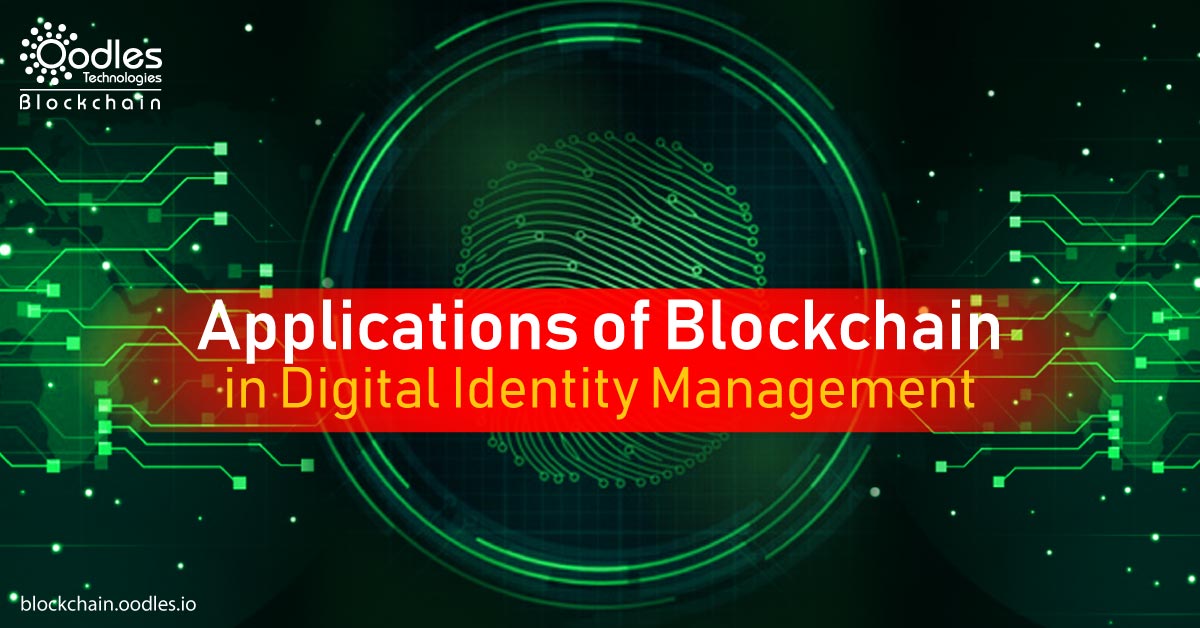-
Imagining a Safe, Reliable, and Secure Blockchain-Based Digital Identity Management
An identity management system using blockchain technology can provide numerous benefits to the stakeholders of a system.
Blockchain digital identity management can enable us to become the owner of our own data.
Then, there's no need to gather and store data attributes in a centralized manner, and no single party needs to verify our identity. It is we who would decide what identity and data attribute we want to share with an organization.
Blockchain is increasingly becoming relevant across several industries due to the attributes it provides, such as transparency, security, and many more.
Hence, we, at Oodles, believe that blockchain digital identity management is all set to transform the current landscape of identity management as well, in a highly secure and transparent manner.
You may also want to read | Blockchain for Advanced and Secure Digital Identity Management
The Existing System is Neither Reliable nor Secure
Always, for any authentic work, we get asked to identify ourselves through multiple government-authorized IDs such as Voter IDs, Passports, Pan Cards, and so on.
Sharing multiple IDs could lead to data breaches and privacy concerns.
This is where the blockchain, through its decentralized network architecture, finds its way to pave the path to a self-sovereign identity that assures and forms privacy and trust.
It helps create a self-sovereign system where identity documents get secured, verified, and approved by permissioned participants.
Now, let's read further to see how blockchain digital identity management would work and serve the masses.
Also, Explore | Digital Identity Management with Hyperledger Projects
Use-cases of Blockchain Digital Identity Management
Loan Approval
If you've ever gone to apply to a bank, then for sure, you must be aware of the hassles (processes) that one goes through.
Generally, we need to provide multiple identity documents and manually complete the verification process.
Possibly, it consumes more than weeks to process the loan or credit.
However, blockchain digital identity management could expedite the process by sharing relevant information within seconds.
Eventually, we won't require to maintain different IDs, and the cost, as well as efforts, could also be hugely reduced.
Also, Visit | Defi Lending and Borrowing Platform Development
Immigration
There are numerous clearance and security checks at an airport that a traveler needs to go through along with carrying a passport and a bag of full a specific set of documents.
From booking a ticket to passing security checks, and moving to a new country, an individual can escape all the processes and present a universal blockchain-based identity.
If a person possesses a decentralized identity, he would not have to undergo complicated security checks and other processes.
So, blockchain-based identity management could streamline processes for both travelers and authorities.
Must-Read | Empowering Decentralized Identity Management with Hyperledger Indy
Legal Procedures
While dealing with any legal process, we submit numerous types of identity proofs. They include address proof, proof of age, proof of occupation, and similar other documents.
With blockchain digital identity management, we might not need to carry multiple documents wherever we go.
Legal entities like governments can ease the verification process of an individual with a single blockchain-based identity.
Therefore, a thorough background check is not needed.
To learn more about blockchain and other emerging technologies in-depth, visit our market insight page.

Our Offices
INDIA
Emaar Digital Greens, Sector 61,
Gurugram, Haryana
122011.
Welldone Tech Park,
Sector 48, Sohna road,
Gurugram, Haryana
122018.














